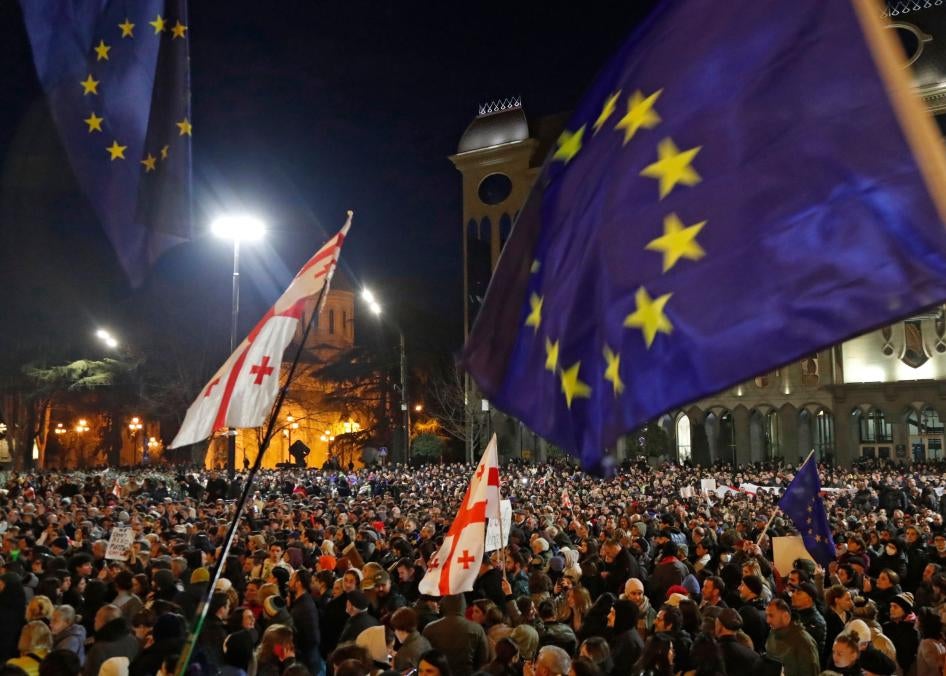Update: On March 9, the ruling party announced that they were withdrawing the bills, citing their failures to explain to the public the perceived need for the law. The authorities should ensure that the bills do not return in any form and guarantee a safe and enabling environment for civil society in Georgia.
Last night in Tbilisi, Georgia, police used massive amounts of teargas and water cannons to disperse thousands of peaceful demonstrators who spontaneously gathered to protest a draft “foreign agents” bill, which the ruling majority rammed through parliament in first reading.
Police detained dozens of people, who now face various administrative and criminal charges. I observed the protest myself and see no legitimate reason for the government’s use of such force to curtail this peaceful gathering.
If adopted, the bill will require nongovernmental organizations and media outlets to register as “agents of foreign influence” if they receive 20 percent of their funding from abroad. These groups would be subject to additional scrutiny, investigations, and fines, and their leaders could be sent to prison if found in violation of the law. A second bill to be voted on tomorrow would impose similar requirements on individuals.
The bill will need to go through two more readings to become law.
Both bills are out of line with Georgia’s human rights obligations to protect the rights to freedom of expression and association, and there is no doubt the intent is to have a chilling effect on the country’s critical voices.
This threat is real. Georgian authorities claim the bill is about boosting funding transparency. But their statements indicate that if the bills are adopted, they will weaponize them for a witch hunt to stigmatize and penalize independent groups, media, and critical voices.
Only yesterday, Prime Minister Irakli Garibashvili told media, “The future of our country … no longer belongs to foreign agents.” The ruling Georgian Dream party chair, Irakli Kobakhidze, also said that the law would “create a list of groups opposing the interests of the country and the Church.”
The United States embassy in Georgia aptly called yesterday a “dark day” for the country’s democracy. Georgia’s other partners issued similarly strong statements and warnings. Their message is loud and clear: Adopting a “foreign agent” bill would be inconsistent with Georgia’s stated commitments to human rights and its Euro-Atlantic aspirations.
I hope Georgia’s leaders will heed these warnings and ensure a safe and enabling environment for the country’s civil society, instead of a bill that would clearly impede and undermine it. As I write this, another rally is gathering in front of the parliament to protest the law. I hope this time authorities fully respect freedom of assembly and do not interfere unduly in peaceful expression of grievances.










